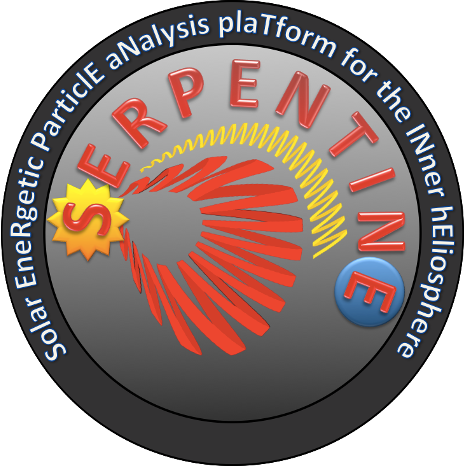STORMS
Solar Terrestrial ObseRvations and Modeling Service
SERPENTINE


The Solar EneRgetic ParticlE aNalysis plaTform for the INner hEliosphere (SERPENTINE) project will answer several outstanding questions about the origin of Solar Energetic Particle (SEP) events and provides an advanced platform for the analysis and visualization of high-level datasets to benefit the wider heliophysics community. The key data comes from the most recent European and US missions, i.e., Solar Orbiter, Parker Solar Probe and BepiColombo, which have opened completely new avenues to investigate SEPs. These data are complemented with supporting data from several current missions at Earth’s orbit as well as ground-based radio imaging and spectroscopic observations with the European Low Frequency Array (LOFAR).
The project will focus on unravelling the causes of currently poorly understood large gradual and widespread SEP events. These events also pose the greatest radiation risk to spacecraft outside the shielding provided by Earth’s magnetic field, having thus major importance for the European space weather capabilities. Our platform is expected to significantly foster the further exploitation of the data from European space-borne and ground-based instrumentation and interactions between different communities during and after the project period.
The fundamental questions that will be addressed during the project are:
QUESTION 1
What are the primary causes for widespread SEP events observed in the heliosphere?
QUESTION 2
What are the shock acceleration mechanisms responsible for accelerating ions from thermal/suprathermal energies to near-relativistic energies in the corona and in the interplanetary medium?
QUESTION 3
What is the role of shocks in electron acceleration in large gradual and widespread events? How does it relate to ion acceleration and what is its importance relative to flare acceleration?
The SERPENTINE beneficiaries consist of six teams (University of Turku, The Christian-Albrechts-Universität (CAU), Université Toulouse III Paul Sabatier (UPS), IRAP, Imperial College of Science, Technology & Medicine (Imperial), University of Helsinki (UH), University of Alcalá (UAH)) from five European countries who all are at the forefront of their respective fields and provide complementary expertise and skills to the project.